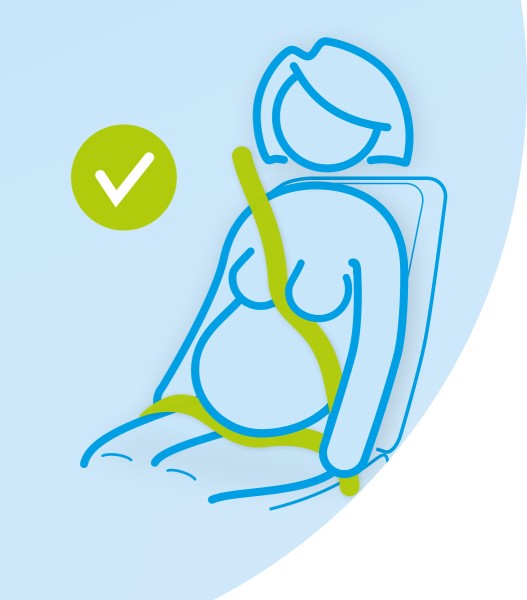New project aims to enhance traffic safety for pregnant women
In a new initiative, researchers are launching a project aimed at addressing the inadequacy of information regarding the use of safety belts and comfort products by pregnant women. The influence of comfort products on the crash performance of the seatbelt will be evaluated. Recent research indicates that a significant number of pregnant women, approximately 16%, improperly use seatbelts, often resorting to comfort products under the misconception that these items will protect their unborn children.
The study named "Pregnant Women's Seatbelt Use: What impact do various types of comfort products have in the event of a collision? Simulation study to confirm conclusions from mechanical sled tests”, aims to evaluate the safety and efficacy of various comfort products marketed to pregnant women. It sheds light on the concerning fact that there is currently an unregulated market for such products, posing potential risks to both the pregnant woman and her unborn child.
Previous tests conducted by SAFER's partners revealed discouraging results regarding the influence of these comfort products on the safety of the pregnant occupant. In crash testing only one product did not reduce the performance of the belt system relative to the performance of the system in a reference tests – a crash test without a comfort product. Notably, one of the products, the so called belt positioner, might assist in keeping the hip belt below or at the level of the abdomen. However, this feature is redundant for those who adhere to the recommended seatbelt positioning—snugly over the thighs and between the breasts.
The project will also involve creating virtual representations of pregnant women and six tested comfort products.
The study's results are expected to provide insights into the need for a re-evaluation of comfort products marketed to pregnant women. The project, scheduled to conclude on June 30, 2024, is sponsored by Skyltfonden with a budget of 409,200 kr. Collaborating partners include Chalmers Industriteknik, Folksam, Chalmers and Autoliv. The project will be associated to SAFER’s research area Human Body Protection.
